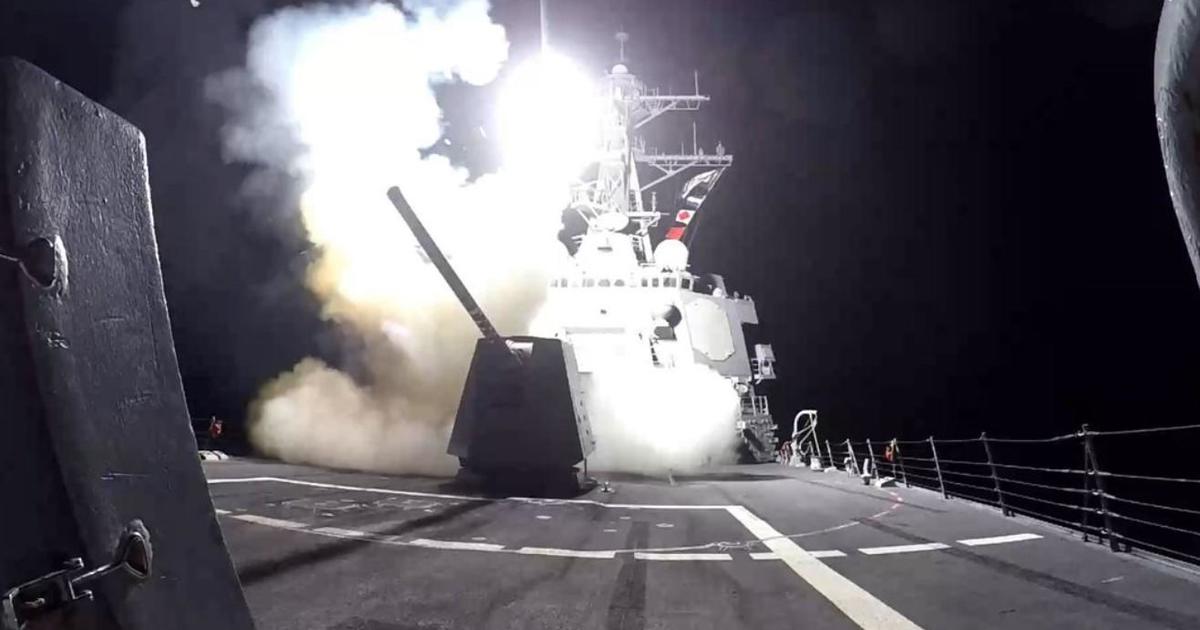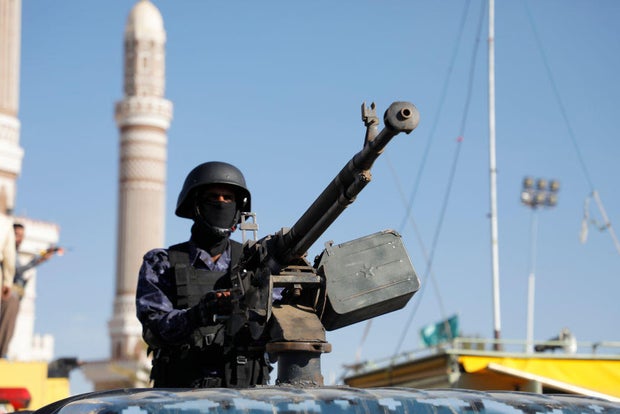U.S. and U.K. military forces late Saturday night launched joint airstrikes on Iranian-backed Houthi targets in Yemen, officials announced.
The airstrikes come one day after the U.S. launched retaliatory airstrikes on more than 85 targets of Iran’s Islamic Revolutionary Guard Corps and its affiliated militias in Syria and Iraq in response to last weekend’s drone strike on a Jordanian base which killed three U.S. service members.
Defense Secretary Lloyd Austin said in a statement that “this collective action sends a clear message to the Houthis that they will continue to bear further consequences if they do not end their illegal attacks on international shipping and naval vessels.”
U.S. Central Command
The militaries of Australia, Bahrain, Canada, Denmark, the Netherlands and New Zealand also provided support, according to a joint statement released on behalf of all nations involved in Saturday’s actions.
The strikes struck 36 Houthi targets at 13 locations in Yemen “in response to the Houthis’ continued attacks against international and commercial shipping as well as naval vessels transiting the Red Sea,” the statement said. The strikes hit Houthi weapons storage facilities, air defense, missile and radar systems.
“Our aim remains to de-escalate tensions and restore stability in the Red Sea but let us reiterate our warning to Houthi leadership: we will not hesitate to continue to defend lives and the free flow of commerce in one of the world’s most critical waterways in the face of continued threats,” the statement said.
A U.S. defense official told CBS News that, since Friday’s U.S. strikes in Iraq and Syria, there has been one attack on U.S. forces. In that attack, multiple rockets targeted U.S. forces based at the Mission Support Site Euphrates in Syria, but there were no reports of injuries or damage.
There have been 167 attacks by Iranian-backed groups on U.S. forces in Iraq, Syria and Jordan since Oct 17 of last year.
Saturday night’s airstrikes also came in addition to “self-defense” strikes earlier Saturday evening on six Houthi anti-ship cruise missiles that were being prepared for launch against ships in the Red Sea, U.S. Central Command said. Another self-defense strike was also conducted on a Houthi anti-ship cruise missile early Sunday morning, CENTCOM reported.
Saturday night’s assault is the third time since Jan. 11 that the U.S. and U.K. have taken part in joint airstrikes after Yemen-based Houthi militants in November began launching dozens of attacks on commercial and naval vessels in the Red Sea. The Houthis, who control large swaths of Yemen, launched their attacks in an act of solidarity with the Hamas militants who invaded southern Israel on Oct. 7, killing more than 1,200 people and as retaliation against Israel’s offensive in Gaza, which officials in the Hamas-run enclave say has killed more than 26,000 people. The Hamas-run Gaza Health Ministry does not distinguish between the deaths of civilians and fighters. Israeli Defense Forces claims it has killed about 9,000 Hamas fighters, and that it has tried to limit civilian deaths.
The Houthi attacks have had a drastic impact on international shipping routes. In December, BP said it was halting oil shipments through the Red Sea, pushing oil prices higher in recent weeks, while furniture giant Ikea warned of possible product shortages. Carnival this week announced it was rerouting 12 of its cruise ships to avoid the Red Sea.
Last month, the Biden administration declared the Houthis to be a “specially designated global terrorist group,” reversing part of an earlier decision by the State Department in February 2021 that had removed that designation.
Osamah Yahya/picture alliance via Getty Images
— David Martin, Eleanor Watson and Kate Gibson contributed to this report.









